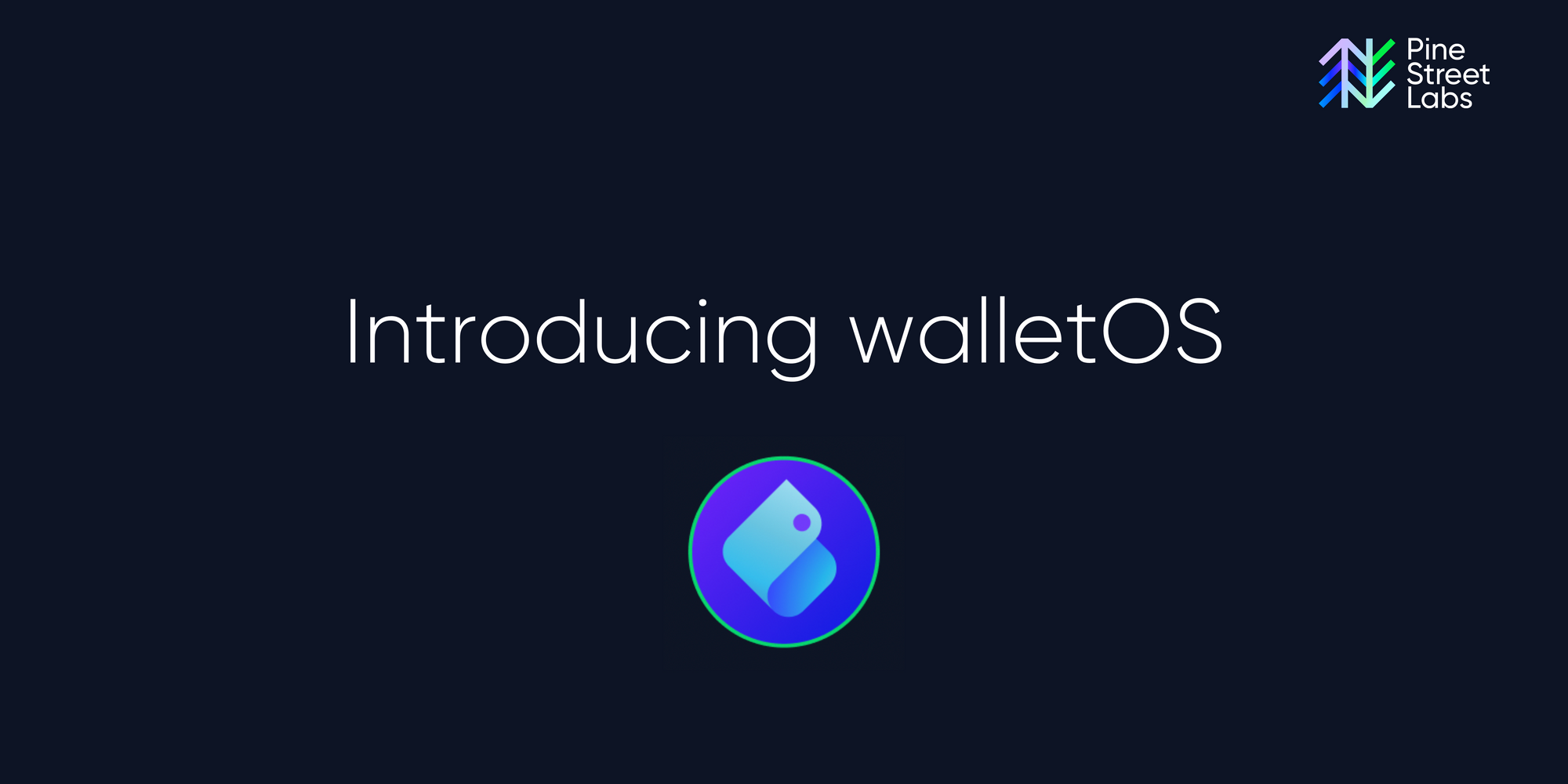Introducing walletOS

At Pine Street Labs, we believe that the future is multi-chain. Over the last few years, the boom in new protocols has benefited users with cheaper fees, better user experience, and more consumer choice. However, the costs for businesses have ballooned as they struggle to securely support and maintain each new blockchain and protocol upgrade.
Each blockchain that launches brings a new set of challenges in supporting novel applied cryptography, encoding schemes, and consensus engines. For existing blockchains, each fork & network upgrade requires diligence and commitment from enterprises. These challenges require engineering resources that drive attention away from the core business. Importantly, these are not optional costs; businesses that do not make these technical and personnel investments will severely limit their ability to use the blockchains that their product and business lines rely on.
End users of crypto businesses acutely feel the symptoms of this problem when they manifest in service outages, slow blockchain integrations, and limited functionality. There needs to be a better solution for businesses to manage this problem if we’re going to scale crypto adoption to a larger set of users.
We are excited to share our solution called walletOS. walletOS is a system for automating workflows, building transactions, and deploying wallets for any blockchain. It is built for enterprises with scale and security in mind.
Our offering is a set of tools designed for businesses to easily and securely add more blockchains, extend the support of their wallets, and programmatically manage their wallets.
In this post, we break down each component of custody and highlight how walletOS helps significantly speed up development for three critical participants in the industry:
- Businesses with existing custody infrastructure
- Businesses bringing custody operations in-house
- New blockchain projects entering the market
At a high level, custody infrastructure is composed of three layers: data, wallet management, and signing.
The data layer is concerned with fetching chainstate and mempool information from the network. This involves communicating with blockchain daemons, indexing services, and on-chain ledgers. When a business chooses to process a debit or credit on a user balance, they are relying on this source of truth from the network.
Wallet management is a collection of functions that manipulates wallet objects, creates transactions, and can manage the ownership model of coins and accounts on blockchains.
Signing is the crucial step of changing ownership of some value on the chain.
walletOS is a system for safely orchestrating these 3 processes. It is a middleware that exists below business applications and on-top of signing devices.
Concretely, walletOS is a control-plane and an API. The control-plane manages modular applications while the API offers a unified interface to blockchains. Modular applications, or modules, are registered to walletOS and help implement a set of interfaces to surface blockchain functionality to the end-user. Our modules are written with our walletOS SDKs in both Go and Rust.
The superpower of our modules is that they enable all users of walletOS to benefit from the framework. We are applying the DRY principle to wallet library development. Users of the system can access modules developed by Pine Street Labs or others in a package manager designed specifically for wallets.
To help with the full lifecycle of custody, walletOS helps orchestrate functions from existing data providers and signing devices. This lets users continue to use their existing workflows without increasing integration costs. For example, walletOS already integrates with several popular signing devices and RPC providers.
Our framework of abstract APIs and modular systems allows our end-users, engineers at crypto businesses, to have a truly plug-and-play experience with their wallet backend systems.
We are very excited and eager to share more about walletOS and our team in the months ahead.
If you are a custodian, exchange, infrastructure firm, staking as a service, wallet, or market participant bothered with slow network additions and want to explore the problem more meaningfully, we are excited to speak with you.
Request access to the product if you are looking for help with any of the following:
- Extending existing wallet functionality;
- Supporting more networks;
- Building in-house custody;
- Easy-to-use API for staking, governance, and other advanced functionality; Or
- An off-the-shelf solution for custody infrastructure.
We are actively hiring for senior software engineers and security engineers to join our growing team. If you are interested in solving cutting-edge problems in the cryptocurrency industry, and enjoy writing software in Rust, then please visit our careers board.


